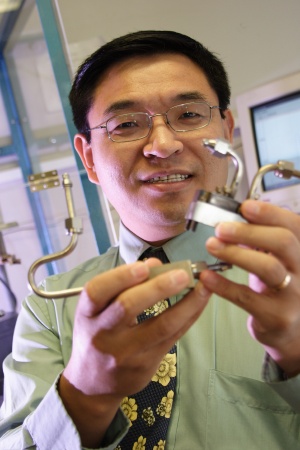The University of Queensland will lead a large-scale Australia-China partnership on clean energy technologies, targeting clean coal, hybrid and fuel cell vehicles, hydrogen production and energy storage.
 Professor Max Lu
Professor Max Lu
Queensland Premier, Anna Bligh, cleared the way for the $3.9 million research partnership by announcing $1.95 million from the National and International Research Alliances Program
Researchers from UQ and the prestigious Chinese Academy of Sciences will develop materials and technologies that may underpin sustainable long-term supplies of global energy .
UQ Vice-Chancellor, Professor Paul Greenfield said the alliance's broad objectives were:
- Cost effective technologies for alternative liquid fuels as well as technologies from solar and clean coal processes that will enable hydrogen production; and
- Materials for storing electricity and hydrogen for the new generation of hybrid vehicles and fuel cell vehicles of the future.
“Queensland Government backing is vital to this three-year research program, which has grown out of more than two years of high-level engagement between the Chinese Academy of Sciences and UQ and the Queensland Government,” Professor Greenfield said.
Deputy Vice-Chancellor (Research) Professor David Siddle said the program's importance from China's perspective is underscored by $1.5 million in cash and $1 million of in-kind support from the Chinese Academy of Sciences.”
All Queensland researchers are associated with the UQ-based Australian Research Council (ARC) Centre of Excellence for Funtional Nanomaterials and are led by Professor Max Lu, a two-time ARC Federation Fellow.
The Chinese experts are from the Chinese Academy of Sciences' Dalian Institute of Chemical Physics and Institute of Metals Research.